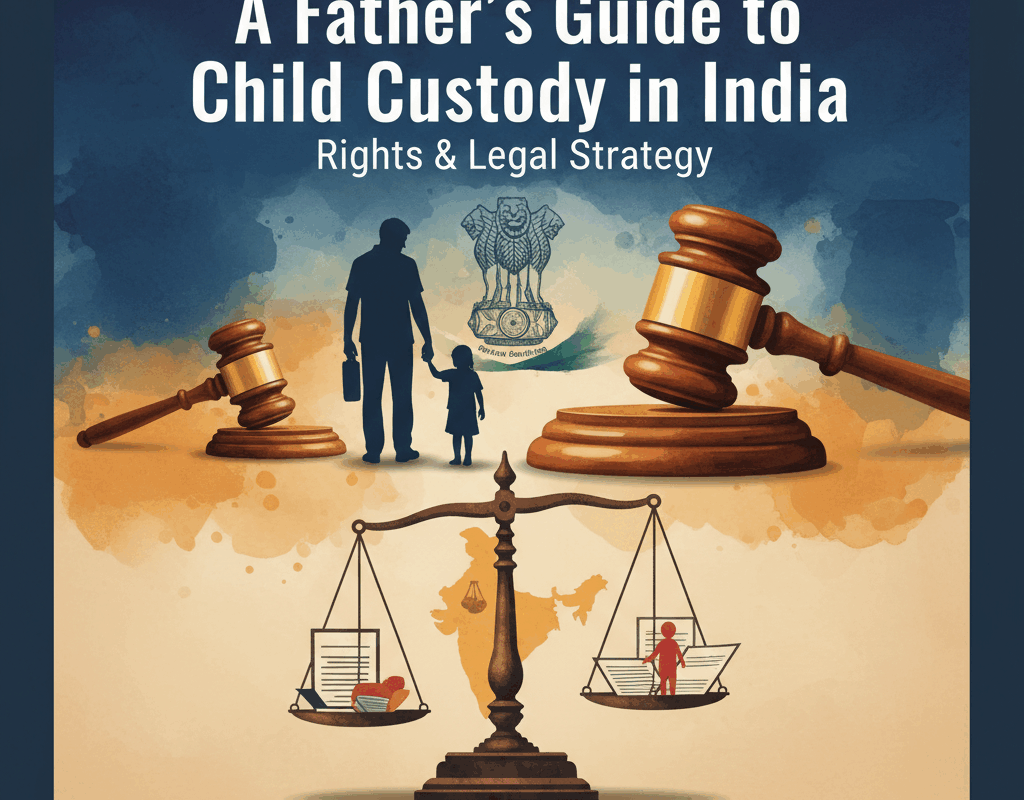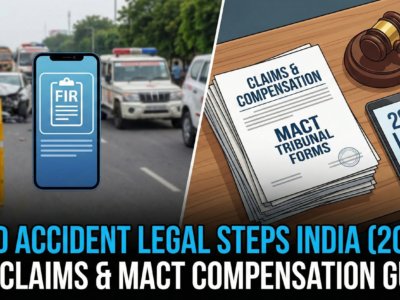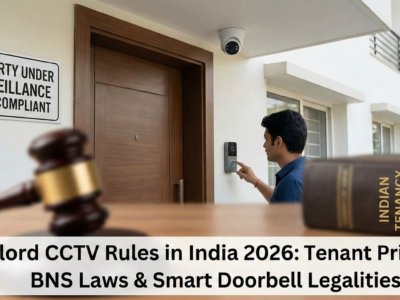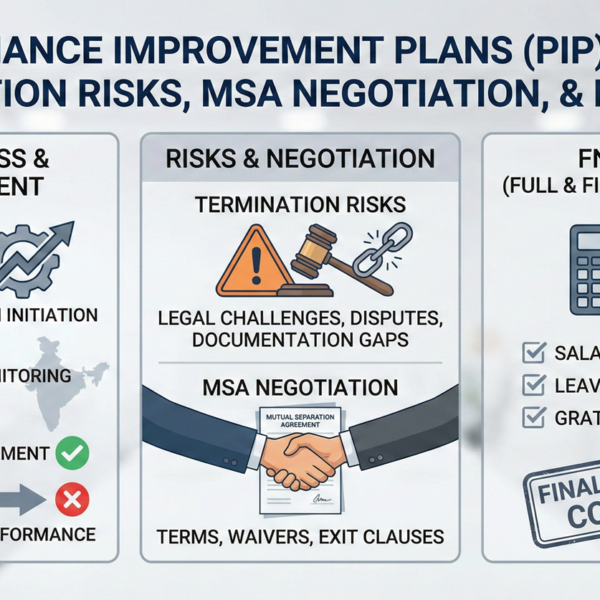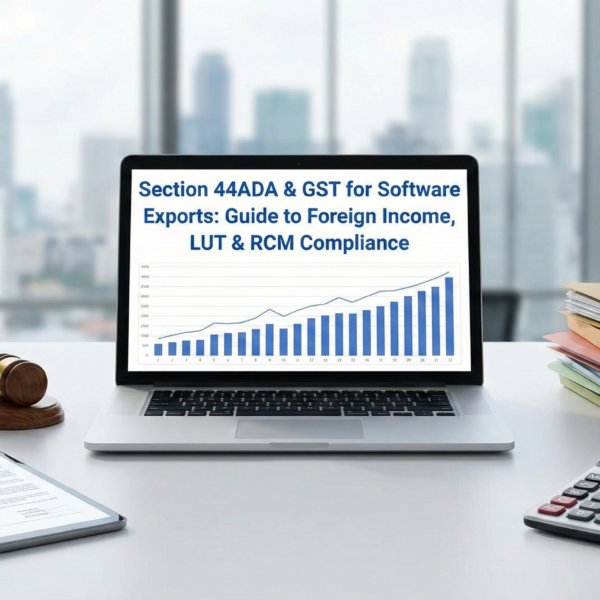Navigating a child custody case is one of the most challenging experiences a father can face. This comprehensive guide from Evaakil.com, is your essential resource for understanding the legal landscape of child custody in India. We move beyond mere parental rights to focus on the court’s single most important criterion: the “welfare of the child.”
Here, you will find a strategic blueprint covering everything from the Guardians and Wards Act and personal laws to practical advice on evidence collection, tackling parental alienation, and securing your vital role in your child’s future. Empower yourself with the knowledge to build a compelling, child-centric case and protect your bond with your child.
A Father's Guide to Child Custody in India
Navigating the legal complexities of child custody with a focus on the paramount principle: the welfare of the child.
The "Luminous Pole Star"
Introduction: A Child-Centric Approach
The landscape of child custody litigation in India has undergone a profound transformation, shifting from a traditional focus on parental rights to a singular, guiding principle: the welfare of the child. This principle is the "luminous pole star" in all custody battles.
This guide serves as an exhaustive legal and strategic resource for fathers, moving beyond statutes to provide a nuanced understanding of the legal framework, a deep analysis of the "welfare principle," and a practical blueprint for building a compelling case. Our goal is to empower fathers to advocate effectively not for their rights, but for their child's best interests.
The Legal Framework in India
The Cornerstone: Guardians and Wards Act, 1890 (GWA)
The GWA is the primary secular law governing guardianship and custody for all minors in India, regardless of religion. Its central and unwavering focus is the welfare of the minor. It establishes "welfare" as the ultimate legal standard, a standard that can supersede presumptions found in personal laws.
Section 7
Empowers the Court to appoint a guardian based on the child's welfare.
Section 17
Codifies the "welfare principle," listing factors like age, sex, religion, and the child's preference.
Section 25
Allows the Court to enforce custody orders and ensure the child's return to the guardian.
Navigating Personal Laws: A Comparative Overview
While the GWA provides the procedural framework, substantive law is often derived from the family's religious personal laws. Here's a comparison:
| Feature | Hindu Law | Muslim Law | Christian Law |
|---|---|---|---|
| Primary Statutes | HMGA, 1956; HMA, 1955 | Uncodified Personal Law | Indian Divorce Act, 1869 |
| Natural Guardian | Father, and "in his absence," the mother (judicially interpreted as equal). | Father is the sole natural guardian (*Wali*). | No statutory concept; both parents have equal standing. |
| Mother's Preferential Right | "Ordinarily" has custody of a child under 5 years. | Right of *Hizanat* until son is 7 / daughter reaches puberty. | No statutory preference based on gender or age. |
| Overriding Principle | Welfare of the child is paramount. | Welfare of the child is paramount. | Welfare of the child is paramount. |
Understanding Custody Arrangements
Indian courts can grant several types of custody arrangements tailored to the child's needs.
Physical Custody
Determines where the child primarily resides. The other parent gets visitation rights.
Legal Custody
Authority to make major life decisions (education, healthcare). Often granted jointly.
Joint Custody
Both parents share physical and/or legal custody. Requires high cooperation.
Sole Custody
Exclusive physical and legal custody. Awarded only in exceptional cases of unfitness (abuse, neglect).
The "Welfare of the Child" Principle
Defining "Welfare": A Holistic View
The term "welfare" is interpreted by courts in its broadest sense, encompassing the child's physical, emotional, psychological, moral, and ethical well-being. It is not about which parent has more money, but who can provide a more safe, stable, and nurturing environment.
Judicial Philosophy: The Supreme Court views custody matters as "human problems" needing a "human touch," where the child's future is the sole and predominant criterion.
Illustrative weightage of factors considered by courts.
Key Factors Evaluated by Courts
Parental Fitness
Assessment of each parent's conduct, maturity, moral character, and mental/physical health. A history of abuse, neglect, or substance abuse is a major red flag.
Stable & Nurturing Environment
Evaluation of the physical home, financial capacity, and the educational and social opportunities each parent can provide.
Parent-Child Relationship
The quality of the emotional bond and the level of each parent's past and present involvement in the child's life is given significant weight.
The Child's Preference
If the child is mature enough (usually 9+), their intelligent preference is considered, though it's not the sole deciding factor.
Continuity and Stability
Courts prefer to minimize disruption in a child's routine. A parent who is more likely to foster the child's relationship with the other parent is also viewed favorably.
A Father's Rights and Legal Standing
Deconstructing Legal Presumptions: Myth vs. Reality
Myth: "Natural Guardian" = Automatic Custody
Section 6(a) of the HMGA names the father as the natural guardian. This sounds like an absolute right.
Reality: From Right to Responsibility
The Supreme Court (*Githa Hariharan v. RBI*) reinterpreted this, effectively giving mothers equal status. The title of "natural guardian" is a responsibility of care that must be proven, not an automatic right to custody. It always yields to the child's welfare.
Myth: Mothers ALWAYS get custody of children under 5
The "Tender Years Doctrine" states custody of children under five shall "ordinarily" be with the mother.
Reality: A Rebuttable Presumption
The key word is "ordinarily." This is not an absolute rule. A father can gain custody if he provides compelling evidence that the mother is unfit or that the child's welfare would be substantially undermined in her care. The onus of proof is on the father.
Tackling Parental Alienation
Understanding Parental Alienation Syndrome (PAS)
Parental Alienation is a strategy where one parent (the alienating parent) intentionally and unjustifiably attempts to damage the child's relationship with the other parent (the targeted parent). While "PAS" is not formally recognized as a mental disorder in India, the concept and the underlying behaviors are increasingly acknowledged by courts as being detrimental to a child's welfare.
Legal Stance: Indian courts may not use the term "PAS," but they will severely disapprove of any conduct that poisons a child's mind against a parent. Such behavior can be a ground for denying custody to the alienating parent.
Recognizing the Signs of Alienation
The Strategic Blueprint: Building Your Case
The Litigation Process: A Step-by-Step Guide
File Petition
Serve Notice
Interim Orders
Mediation
Trial/Hearing
Final Judgment
The Crucial Role of Mediation and Counselling
Before the adversarial court process takes over, courts in India are mandated to explore possibilities of settlement, including mediation. This is a confidential, structured process where a neutral third party helps parents reach a mutually agreeable solution.
Child-Centric Focus
Mediation shifts the focus from "winning" to co-creating a parenting plan that genuinely serves the child's best interests.
Confidentiality
Discussions during mediation cannot be used as evidence in court, allowing for open and honest communication without fear.
Cost & Time Effective
It is significantly faster and less expensive than a prolonged court battle, saving emotional and financial resources.
Pro Tip: Actively and genuinely participate in mediation. Even if a full agreement isn't reached, it demonstrates your reasonableness and commitment to co-parenting, which is viewed very favourably by the court.
Interactive Evidence Checklist
Success is built on evidence. Use this interactive checklist to understand what to gather. Click the filters to narrow down the list.
| Evidence Item | Purpose / Argument it Supports |
|---|---|
| Income tax returns, salary slips, bank statements. | Demonstrates ability to provide for child's material needs. |
| Lease/mortgage, utility bills, photos of home/child's room. | Shows a safe, stable, and secure physical environment. |
| School report cards, emails from teachers, PTA meeting proof. | Proves active participation in the child's academic life. |
| Medical records, vaccination charts, doctor's visit receipts. | Establishes you as a responsible caregiver for the child's health. |
| Photos, videos, parenting journal, witness statements. | Provides tangible proof of a strong, loving emotional bond. |
| Emails, text messages showing respectful, child-focused communication. | Positions you as the mature, cooperative parent. |
| Police reports, medical/psychological evaluations (use with extreme caution). | Used only to prove child's welfare is at risk with the mother. |
Petition Filing Template (Sample Format)
Important Disclaimer: This is a simplified, illustrative template and not a substitute for legal advice. It should be drafted and filed by a qualified advocate. The content and structure may vary based on the specifics of your case and the court's requirements.
IN THE COURT OF THE DISTRICT JUDGE AT [Name of Court, e.g., ALIPORE], WEST BENGAL
Guardianship Case No. ______ of 2025
Sri [Father's Full Name],
son of [Father's Father's Name],
residing at [Father's Full Address].
... Petitioner
-VERSUS-
Smt. [Mother's Full Name],
wife of [Father's Full Name],
daughter of [Mother's Father's Name],
residing at [Mother's Full Address].
... Respondent
PETITION UNDER SECTIONS 7, 17, AND 25 OF THE GUARDIANS AND WARDS ACT, 1890 FOR APPOINTMENT OF THE PETITIONER AS GUARDIAN AND FOR GRANTING PERMANENT CUSTODY OF THE MINOR CHILD, [Child's Name].
The Petitioner most respectfully begs to state as follows:
- That the Petitioner and the Respondent are husband and wife, their marriage having been solemnized on [Date of Marriage] according to Hindu rites and ceremonies at [Place of Marriage].
- That out of the said wedlock, a [son/daughter], namely [Child's Name], was born on [Child's Date of Birth], and is currently aged [Child's Age] years. The said minor is currently in the custody of the Respondent.
- That due to irreconcilable differences and disputes, the Petitioner and Respondent have been living separately since [Date of Separation].
- That the Respondent is not a fit person to have custody of the minor child because [State grounds briefly, e.g., she neglects the child's education, her living environment is not suitable, she is alienating the child from the petitioner, etc.]. Provide specific instances if possible.
- That the Petitioner is gainfully employed as a [Your Profession] at [Your Workplace] and has a stable income. He resides in a [e.g., 2-bedroom apartment] which is conducive to the healthy upbringing of a child. [Mention family support if available, e.g., The Petitioner's parents also reside with him and are eager to support the child's care].
- That the Petitioner has always been an involved and loving father and has a deep emotional bond with the child. [Provide examples of your involvement].
- That the paramount consideration in this matter is the welfare of the child. It is submitted that the child's physical, emotional, and educational well-being will be best served in the custody of the Petitioner.
- That the cause of action for this petition arose on [Date of Separation] and continues thereafter, within the jurisdiction of this Hon'ble Court.
PRAYER
It is, therefore, most humbly prayed that this Hon'ble Court may be pleased to:
- Admit this petition.
- Appoint the Petitioner as the legal guardian of the minor child, [Child's Name].
- Grant the permanent custody of the said minor child to the Petitioner.
- Grant interim custody of the minor child to the Petitioner during the pendency of this case.
- Pass such other order or orders as this Hon'ble Court may deem fit and proper.
VERIFICATION
I, [Father's Full Name], the petitioner above-named, do hereby solemnly affirm and state that the contents of paragraphs 1 to 8 are true to my knowledge and belief. I have signed this verification at Kolkata on this 19th day of September, 2025.
____________________
Signature of Petitioner
Digital Evidence: The New Battlefield
Leveraging Technology Responsibly
In today's world, a significant portion of our lives is documented digitally. Family courts are increasingly accepting electronic records as evidence. This can be a double-edged sword; it can either substantiate your claims or damage your case if used improperly.
Legal Requirement: To be admissible in court, electronic evidence must be accompanied by a certificate under Section 65B of the Indian Evidence Act, 1872, certifying its authenticity.
Harnessing Digital Proof
Evidence That Can Help Your Case:
- WhatsApp/Emails: Showing you making visitation arrangements, discussing schoolwork, or trying to co-parent constructively.
- Online Bank Transfers: Digital receipts for school fees, medical bills, or maintenance payments.
- Photos/Videos: Dated media showing your consistent and positive involvement in the child's life (birthdays, holidays, daily routines).
Digital Pitfalls to Avoid:
- Abusive Language: Never send angry, threatening, or abusive texts or emails, no matter the provocation. They will be used against you.
- Inappropriate Social Media: Posts showing excessive partying, irresponsible behavior, or new relationships can be portrayed as evidence of instability.
- Venting Online: Do not post about the case or disparage the mother on social media. It shows poor judgment and a lack of child-focus.
Financial Realities: Understanding Child Maintenance
The Child's Right to Support
Child maintenance, or support, is a legal obligation on both parents, and it is considered the right of the child. It is separate from alimony (spousal support). The primary law governing maintenance for all, regardless of religion, is Section 125 of the Code of Criminal Procedure (CrPC). The purpose is to ensure the child can lead a life consistent with the status and lifestyle of their parents.
How is the Amount Calculated?
There is no fixed formula. The court makes a discretionary decision based on several factors:
- The income, assets, and liabilities of both the father and the mother.
- The reasonable needs of the child (education, healthcare, extracurriculars, etc.).
- The standard of living the child was accustomed to before the separation.
- Any independent income or property the child may have.
The court balances the NEEDS of the child with the CAPACITY of the parents to provide.
A Father's Duty: Even an unemployed father is expected to pay maintenance. The courts hold that every able-bodied person has a duty to support their child and cannot shirk this responsibility by claiming unemployment. Being transparent about your finances and continuing to voluntarily support your child during separation is viewed very positively.
Post-Decree Realities & Future Steps
Securing Visitation Rights
For non-custodial parents, meaningful visitation is key. Courts almost always grant visitation rights, denying them only in extreme cases of harm. Propose a detailed, reasonable, and child-centric visitation plan to the court.
Modifying Custody Orders
Custody orders are not permanent. They can be modified if there is a "substantial change in circumstances" (e.g., relocation, remarriage, change in child's preference) and the modification is necessary for the child's welfare.
Enforcing Court Orders
If the custodial parent willfully disobeys visitation orders, you can file a "contempt of court" petition. Meticulous documentation of every denied visit is crucial. Keep a detailed log and save all communication (texts, emails) as proof.
The Role of Grandparents
Understanding Grandparents' Visitation Rights
Indian law recognizes the significant role grandparents play in a child's life. While their rights are not absolute, paternal grandparents can approach the court if they are denied access to their grandchild.
They can file an application in the family court seeking visitation rights. The court will grant such rights if it determines that it is in the best interest of the child to maintain a relationship with their grandparents. This provides another avenue to ensure the child remains connected to their paternal family, which contributes to their overall sense of identity and stability.
Navigating International Child Abduction
The Hague Convention & Indian Law
Parental child abduction to another country is a serious issue. The primary international treaty to address this is the Hague Convention on the Civil Aspects of International Child Abduction, which aims for the prompt return of wrongfully removed children to their country of habitual residence.
India's Stance
Crucially, India is not a signatory to the Hague Convention. However, Indian courts are not oblivious to these principles. They often apply the principle of "comity of courts" (respecting foreign court orders) and the principle of "prompt return," but always filter these through the supreme lens of the child's welfare.
Legal Recourse for a Father:
- File a writ of Habeas Corpus in the High Court, which is the fastest remedy to seek the production and return of the child.
- The court will conduct a summary inquiry (not a detailed trial) to determine if the child should be returned to the foreign jurisdiction.
- The father must prove that the child's immediate and paramount welfare is best served by returning them to their country of habitual residence to let the courts there decide on custody.
Legal Resources in Kolkata
Accessing Legal Aid
West Bengal Legal Services Authority (WBSLSA)
State-run body for free legal services.
1800 3456 6040 (Toll-Free)
wbstatelegal@gmail.com
Legal Aid Services, West Bengal (LASWEB)
Pro bono legal aid and counseling.
033-3510-7463
laswebwb@yahoo.com
Protecting Your Well-being: The Marathon Mindset
This is a Marathon, Not a Sprint
Child custody battles are emotionally and mentally draining. The stress, uncertainty, and conflict can take a significant toll on your well-being. It is vital to take care of yourself so you can be the best possible advocate for your child.
- Build a Support System: Lean on trusted family, friends, or a support group. Do not isolate yourself.
- Focus on What You Can Control: You cannot control the court or the other parent, but you can control your actions, your preparation, and your conduct.
- Seek Professional Help: There is no weakness in speaking to a therapist or counsellor. It provides a confidential space to process emotions and develop coping strategies.
Conduct During Custody Proceedings: Do's & Don'ts
The Do's
Stay Actively Involved
Continue attending school meetings, doctor's appointments, and extracurriculars. Your consistent presence speaks volumes.
Maintain Financial Support
Continue paying school fees and other expenses as you were before. Keep meticulous records of all payments.
Communicate Respectfully
Keep all communication with the mother child-focused, polite, and in writing (email/text) for documentation.
Follow Court Orders
Adhere strictly to all interim visitation and custody orders, no matter how unfair they may seem.
The Don'ts
Never Speak Ill of the Mother
Do not badmouth the mother to or in front of the child. It is harmful to the child and reflects poorly on you in court.
Don't Involve the Child in Disputes
Do not use your child as a messenger, spy, or emotional confidant regarding the legal case.
Don't Post on Social Media
Avoid posting anything about the case, the mother, or your lifestyle online. It can and will be used against you.
Don't Give Up
The process can be long and emotionally draining. Stay resilient and focused on your goal: your child's well-being.
Frequently Asked Questions (FAQ)
Not automatically. The sole consideration is the child's welfare. While a parent's conduct is a factor, the court will only deny custody if the behavior is proven to have a direct, negative impact on the child's well-being. A single act of adultery is unlikely to be a deciding factor unless it involves neglect or exposure of the child to harmful situations.
Yes. Custody is not a battle of bank balances. While financial stability is a factor, it is not the most important one. The ability to provide a safe, loving, and nurturing environment is paramount. A father with a modest but stable income can absolutely win custody over a wealthy but neglectful mother. The non-custodial parent would also be ordered to pay child support.
A report from a neutral, court-appointed child psychologist or counsellor can be highly influential. They conduct interviews with the parents and the child to provide the court with an unbiased, expert opinion on the family dynamics, the child's psychological needs, and which parent is better equipped to meet those needs. It often carries significant weight in the final decision.
Both parents have a legal duty to maintain their child. During the proceedings, the court can pass an order for "interim maintenance" under Section 125 of the CrPC or relevant personal laws. The court will order the parent with greater financial capacity (often the father) to pay a monthly amount to the parent with whom the child is residing to cover the child's expenses while the case is pending.
Get Professional Legal Advice
This guide provides a strong foundation, but every custody case is unique. For personalized strategy and dedicated representation tailored to your specific circumstances, contact our team of experienced family law advocates.
Contact Us Now via EmailKey Takeaways for Fathers
Shift Your Mindset
Focus on the child's welfare, not parental rights. Frame every argument through the lens of what the child needs.
Become a Documentarian
Objective evidence is king. Meticulously document your involvement in your child's life to turn assertions into facts.
Demonstrate Reasonableness
Show the court you are cooperative and child-focused. The parent who fosters a relationship with the other parent is viewed favorably.
The process is a marathon, not a sprint. With preparation, patience, and a child-centric strategy, you can navigate Indian custody law and secure your vital role in your child's life.
A Final Word: Your Enduring Role
Navigating the corridors of family court is undoubtedly one of the most emotionally taxing journeys a father can undertake. This guide has equipped you with the legal knowledge and strategic framework necessary to build a compelling case, but the foundation of your success will always be your unwavering commitment to your child's well-being.
Remember, the ultimate objective is not to "win" a battle against the mother, but to collaboratively secure a peaceful, stable, and loving future for your child. The court's primary mandate is to protect and nurture that future. By aligning your actions and arguments with this core principle, you present yourself not merely as a claimant, but as a dedicated and indispensable parent.
Your role in your child's life is irreplaceable. Pursue it with dignity, integrity, and a steadfast focus on the one person who matters most. Your child's future is worth the fight.

